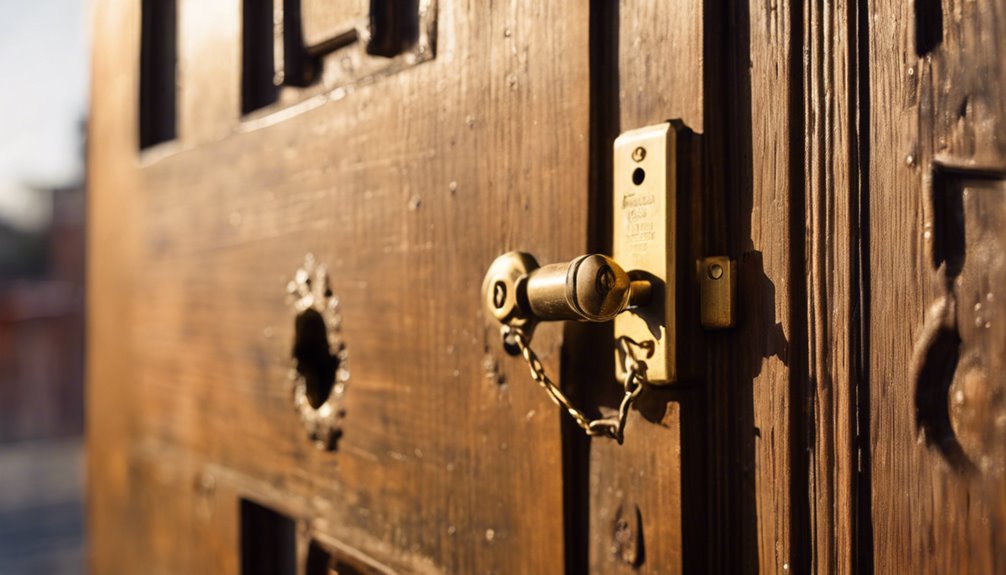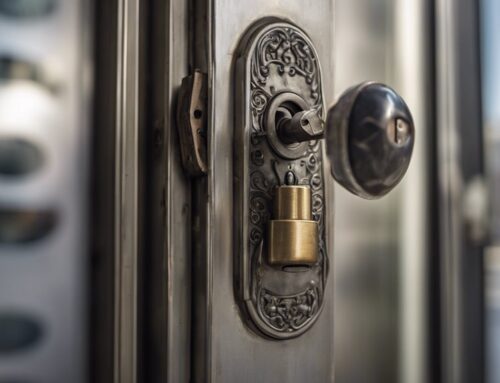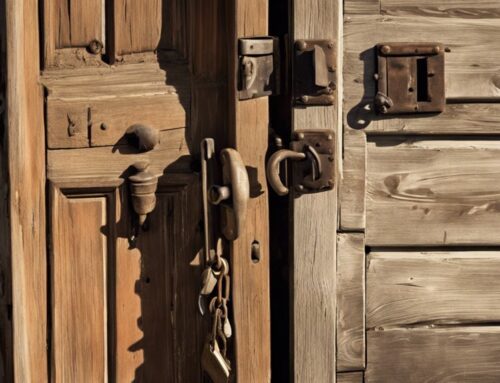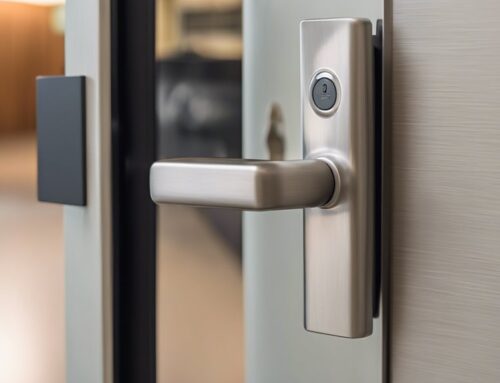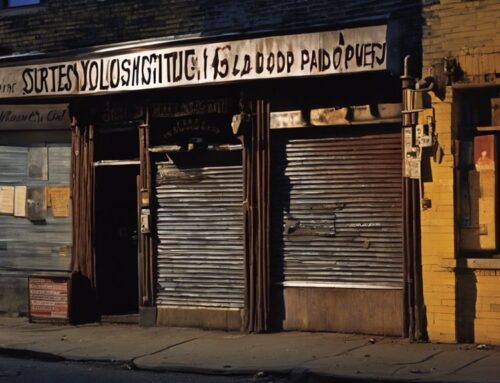When you think about locksmiths and their role in your property's security, it's essential to understand how Pennsylvania law frames their liability in break-ins. If a locksmith's negligence leads to a security breach, they could be held accountable—along with property owners who neglect adequate protective measures. The interplay between locksmith duties and property owner responsibilities raises significant questions about what constitutes proper security. But what happens when negligence needs to be proven in court? Let's explore the implications that follow.
Key Takeaways
- Pennsylvania law holds locksmiths liable for inadequate security, resulting in break-ins due to negligent installation or maintenance of locks.
- Property owners may face liabilities under Pennsylvania's negligent security laws if locksmiths fail to caution against potential criminal activity.
- Documentation of security measures and their effectiveness is crucial in establishing liability claims against locksmiths after a break-in occurs.
- Courts evaluate local crime statistics and previous incidents to determine a locksmith's responsibility in the event of a break-in.
- Liability claims against locksmiths must be filed within two years of the incident, per Pennsylvania's statute of limitations for negligence.
Overview of Locksmith Liability

Locksmith liability encompasses various responsibilities that can significantly impact both clients and professionals. As a locksmith, your primary duty is ensuring the safety and security of your clients' property. This involves installing, repairing, and modifying locks, along with originating keys. You're not just fixing locks; you're safeguarding your clients' access to their spaces and belongings. Hence, it's essential your work maintains the integrity of the security systems. Additionally, locksmiths should be aware of the legal implications surrounding negligent security, as failures in securing property can lead to severe consequences. Operating as an unlicensed locksmith in Pennsylvania could result in significant legal penalties, making it crucial to obtain the proper licensing to avoid these pitfalls. In Pennsylvania, locksmiths must adhere to licensing requirements to ensure they are legally recognized and professionally compliant.
Your liability extends beyond the immediate services you provide. Negligent handling of keys or locks can expose you to claims for property damage or personal injury. If your work is incomplete or faulty, it could compromise the security of a client's premises, leading to potential legal disputes and financial loss. When you fail to deliver on your promises, it doesn't just affect client satisfaction; it can also result in expensive legal fees and damage to your reputation.
Understanding the right types of insurance coverage is important to mitigate these risks. Professional liability insurance offers protection for claims related to your professional services, while general liability insurance covers third-party injuries and property damage. Additionally, your obligations may include adhering to federal and state regulations and acquiring necessary licenses. Remember, maintaining compliance not only protects your business but also reinforces client trust in your capabilities as a locksmith.
Negligent Security Explained
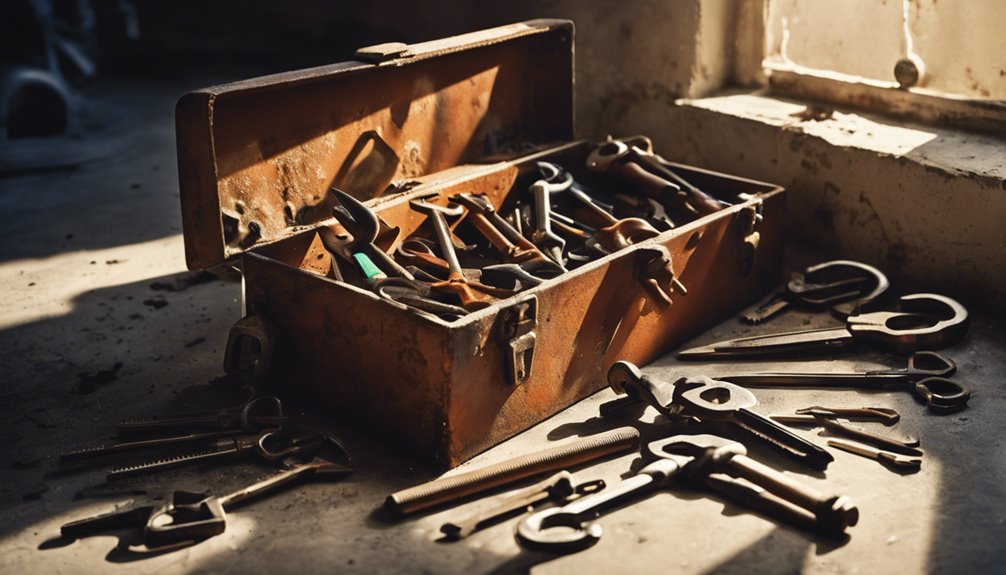
Negligent security refers to a property owner's failure to implement adequate security measures that protect individuals from foreseeable harm. This issue highlights the role locksmiths play in ensuring that properties are secured effectively, as inadequate or faulty locks can create vulnerabilities. Understanding how negligent security and locksmith services intersect is essential for evaluating liability in potential legal claims. A property owner has a legal duty to take reasonable steps to prevent crime on their premises, including ensuring adequate security measures provided by locksmiths are in place. In Pennsylvania, locksmiths must adhere to specific employment laws that ensure they perform their duties responsibly and protect the rights of both workers and clients. Additionally, compliance with essential safety standards for locks is crucial for both residential and commercial properties to ensure the legal safety and security of a premises.
Defining Negligent Security
When property owners fail to implement adequate security measures, they may become liable for any resulting crimes or injuries—a concept known as negligent security. This term falls under premises liability law, emphasizing the owner's responsibility to maintain a safe environment. Property owners must foresee potential dangers and proactively mitigate them. In the context of evictions, a locksmith also plays a crucial role in ensuring that the process is conducted legally and professionally. Locksmiths in Pennsylvania can enhance their professional image by obtaining certifications and proper registrations.
In particular, the duty of care requires property owners to take reasonable actions based on the circumstances surrounding their premises.
Here's a breakdown of key elements of negligent security:
| Element | Description | Examples |
|---|---|---|
| Duty of Care | Maintain properties safely. | Adequate lighting |
| Foreseeability | Anticipate possible criminal acts. | Known crime in the area |
| Security Measures | Implement industry-standard security protocols. | Security personnel, cameras |
| Breach of Duty | Failure to act appropriately. | Malfunctioning surveillance |
| Documentation | Gather evidence of inadequate security. | Police reports, witness accounts |
Negligent security claims focus on the property owner's failure to take reasonable steps to prevent foreseeable crimes. By establishing a clear link between inadequate security and criminal incidents, you can build a strong case against negligence and hold property owners accountable.
Role of Locksmiths
In today's landscape of increasing property crime, the role of locksmiths extends far beyond merely opening doors. They're indispensable players in fortifying properties through the installation of high-security locks and electronic access control systems. By evaluating a property's vulnerabilities, locksmiths design tailored security solutions that address specific needs, thereby enhancing safety.
Their contributions markedly deter crime. Visible security enhancements, such as robust locks and security cameras, discourage would-be intruders. Implementing key control measures limits unauthorized access, and raising public awareness about strong security practices further dissuades criminal behavior. It's crucial to note that under Pennsylvania law, understanding lock picking is essential for locksmiths to ensure compliance with legal guidelines and avoid legal issues.
Locksmiths also provide essential emergency services. They respond quickly to lockout situations and resolve emergencies involving broken locks or lost keys without compromising security.
Maintenance is a critical component of their work; they guarantee the continuous functionality of security systems and repair damaged mechanisms to uphold security integrity.
Additionally, locksmiths engage in community education, empowering individuals with knowledge about best security practices. Through workshops and outreach initiatives, they foster a proactive mindset towards property security.
Moreover, locksmiths ensure that the security measures they implement meet the high-security locks standards required by Pennsylvania, which are essential for compliance with state guidelines.
In this way, locksmiths play a pivotal role in creating safer environments and enhancing community trust in security measures.
Liability in Break-In Cases
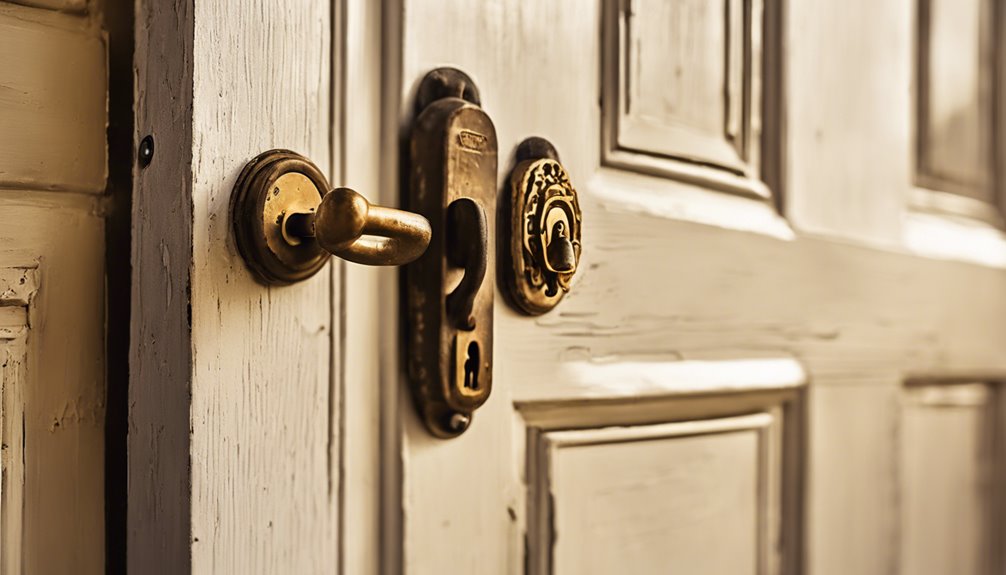
Property owners may face significant liability in break-in cases if they haven't implemented adequate security measures. Under Pennsylvania's negligent security laws, a property owner's responsibility extends beyond merely owning the property; they must foresee potential criminal activity and take necessary precautions, such as installing security cameras, guaranteeing proper lighting, and maintaining functioning door locks. Additionally, locksmiths must be aware of digital lock regulations to ensure compliance when advising or installing security systems.
Courts analyze local crime statistics and prior incidents to evaluate whether the owners should have anticipated the risks associated with their property. Your duty of care encompasses all common areas, demanding attention to the safety of stairwells and entryways. You must guarantee that locks, gates, and fences are in prime condition.
If you've voluntarily provided a security system, you're held to a higher standard; an inadequate system can increase your liability. Furthermore, Pennsylvania employs comparative negligence principles. If a break-in occurs, the court may reduce your liability if the victim contributed to the situation through negligence.
The foreseeability of crime plays a critical role; if criminal activity has been prevalent in your area, you have a greater obligation to enhance security measures. Legal precedents highlight the serious implications of neglecting security. Cases like Reider v. Martin demonstrate the consequences of ignoring known security issues, while more recent rulings expand the scope of liability to include broader security concerns.
Ultimately, maintaining a reasonable level of security is essential to limit your liability in break-in cases. It is also crucial to be aware of key duplication laws that regulate permissions and restrictions in Pennsylvania, ensuring that any locksmithing practices comply with state regulations.
Role of Insurance Coverage
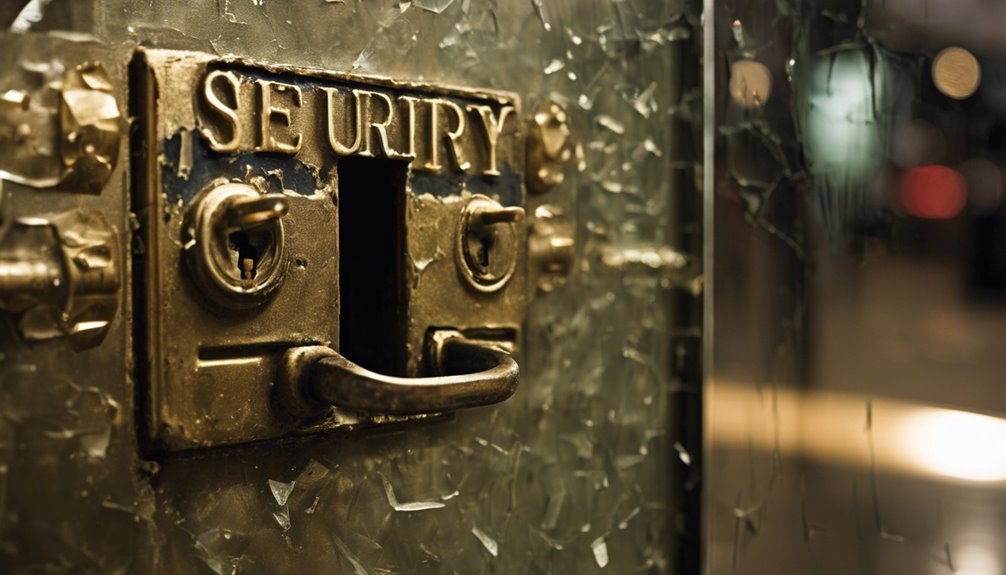
While locksmith services can be essential in securing properties, understanding the role of insurance coverage is fundamental for mitigating risks associated with break-ins. Having the right insurance can protect you from financial losses caused by unexpected incidents, such as vandalism or natural disasters. If your locks or keys are damaged during a break-in, your insurance policy may cover the costs for repairs or replacements, as well as the locksmith services required to restore security.
However, it's important to recognize the limitations of this coverage. Locksmith services typically aren't covered in cases of lost or misplaced keys. Additionally, damages caused by poor maintenance or specific natural disasters like earthquakes mightn't qualify for reimbursement. Even if your claim is valid, it often results in partial reimbursement, which may not cover the full costs incurred. Frequent claims could also escalate your insurance premiums, making it essential to manage how often you file. In Pennsylvania, following the specific guidelines for locksmith apprenticeships can also ensure that locksmiths are well-trained, which can help reduce liability risks.
Different types of insurance address various aspects of locksmith liability. General liability insurance can shield you from claims of negligence, property damage, or personal injury while commercial property insurance protects your tools and office.
Additionally, having coverage for employee dishonesty can safeguard against related losses. A thorough insurance policy not only provides financial security but also reassures your clients of your professional responsibility. For example, licensed & insured services by Low Rate Locksmith guarantee expertise and trustworthiness, enhancing credibility. Being adequately insured can bolster your business's credibility and enhance your ability to handle claims effectively.
Statute of Limitations Explained

Understanding filing timelines is essential for victims seeking compensation in locksmith liability cases. If you miss the 2-year deadline, you lose the opportunity to file a claim, which can greatly impact your ability to recover damages. In Pennsylvania, locksmiths play a critical role in foreclosure processes, which involves handling the secure change of locks and ensuring the property is accessible only to authorized individuals. Delays can also complicate your case, making it harder to gather the evidence needed to prove negligence. Additionally, businesses must ensure that their security systems and locks comply with the ADA compliance requirements to avoid potential legal liabilities and ensure accessibility for all individuals.
Filing Timelines Explained
When you're considering a negligent security claim in Pennsylvania, it's crucial to be aware of the two-year statute of limitations that starts from the date of the incident. If you miss this deadline, your claim won't be heard in court.
Here's what you need to know about the filing timeline:
- Duration: You've got two years from the incident date to file your complaint.
- Filing Location: The complaint must be filed in the Prothonotary's office of the Court of Common Pleas.
- Serving the Complaint: The document needs to be delivered to the Sheriff for proper service of process.
- Avoiding Pitfalls: Filing in the Magisterial District Court doesn't satisfy the statute if service isn't completed within that two-year window.
Be meticulous in adhering to these guidelines. Locksmiths hold valid certifications and licenses, ensuring professional and reliable service, which is a crucial factor to consider when evaluating potential negligence.
Once that two-year mark passes, the opportunity to seek recourse vanishes. Understanding and managing your filing timeline is pivotal for effectively pursuing your negligent security claim.
Be proactive to protect your rights; time is of the essence in ensuring your complaint is valid and actionable.
Impact of Delays
In the domain of locksmith liability, delays in filing a claim can have significant repercussions. Understanding the statute of limitations and its impact is essential for your legal rights. In Pennsylvania, you typically have two years from the incident date to file a personal injury or property damage claim. If you miss this window, you risk losing your opportunity to recover compensation.
| Aspect | Details |
|---|---|
| General Rule | Two years from the incident's date |
| Start Date | Begins on the day the incident occurs |
| Consequences of Delay | Filing late bars your claim |
| Exceptions | Minors and those with disabilities may extend the timeframe |
Remember that the statute can sometimes postpone based on conditions like the discovery rule, where the cause or injury wasn't immediately known. Failing to take action within the time limit not only inhibits your freedom to claim justice but can leave you financially vulnerable after a break-in. Stay informed and aware of these vital deadlines to protect your rights effectively.
Types of Crimes Affecting Liability
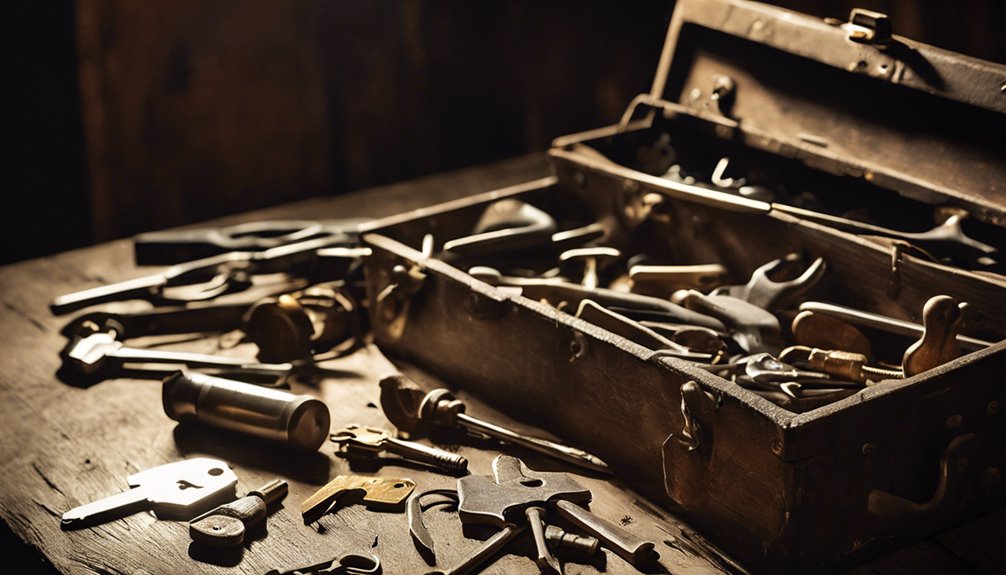
Criminal activities like robbery, burglary, theft, and negligent security can greatly impact the liability of locksmiths and property owners alike. Understanding these crimes is essential for managing risk effectively. Each type can expose parties to significant liability.
- Robbery involves taking property using force, which can occur at locksmith service sites. If a firearm is present, liability increases for both the locksmith and the property owner.
- Burglary is defined as entering a building without permission with the intent to commit a crime. If locksmith services facilitate unauthorized access, the locksmith can be implicated, particularly if locks fail to meet adequate security standards.
- Theft is the unlawful taking of property with the intent to deprive the owner. This can extend to internal theft, where locksmith employees steal from clients. A locksmith may face liability if secure practices aren't enforced.
- Negligent security arises when property owners fail to provide reasonable security measures, like proper lighting or maintenance of locks. If a crime occurs that was preventable with appropriate security measures, multiple parties can be held liable.
Proving Negligence in Court
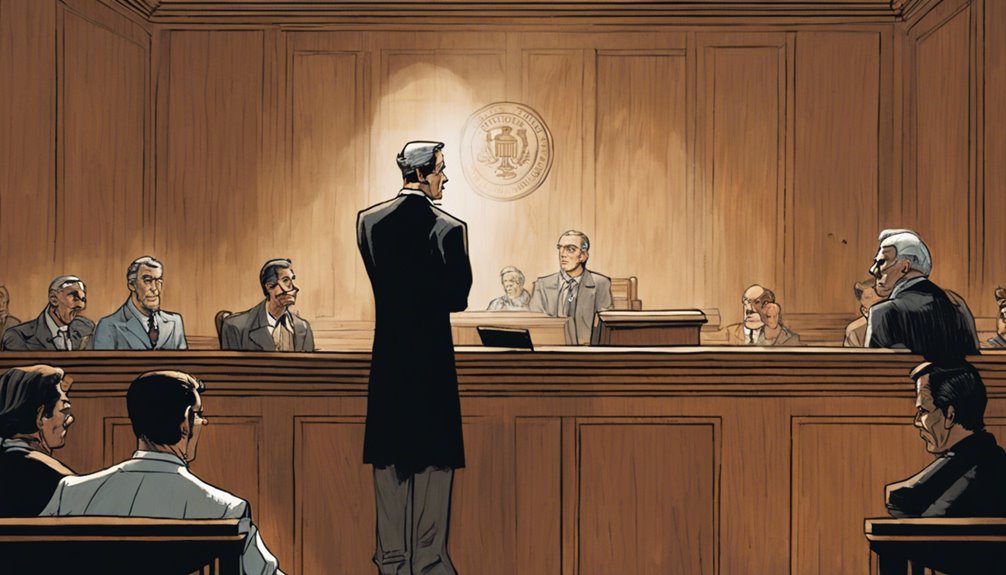
Understanding the types of crimes that can affect locksmith liability sets the stage for exploring how negligence is proven in court. When bringing a negligence claim, you need to establish a duty of care, breach of that duty, proximate cause, and the resulting damages.
First, you must show that the locksmith owed you a legal duty of care. This duty can vary with circumstances, such as the specific security needs of properties like apartment buildings or nightclubs. Property owners are obligated to maintain a safe environment and foresee potential criminal activities that could occur.
Next, you'll need to demonstrate a breach of that duty. This can be done by highlighting the locksmith's unreasonable behavior, such as failing to install necessary security measures, or not properly training staff. If they violated laws related to security, that can serve as evidence as well.
Expert testimony may also support your claim by outlining how their actions introduced an unreasonable risk of harm.
You must then establish a link between the locksmith's negligence and the harm you suffered. This includes proving that an assailant gained entry due to a negligently maintained security measure and that the intruder was indeed an outsider. Using circumstantial evidence can help strengthen your case, but it needs to be reasonable, not speculative.
Finally, you have to show that you suffered damages, whether physical or property-related, directly resulting from this negligence. Present evidence that substantiates your claims, ensuring you file your case within two years of the incident to meet Pennsylvania's statute of limitations.
Importance of Professional Standards
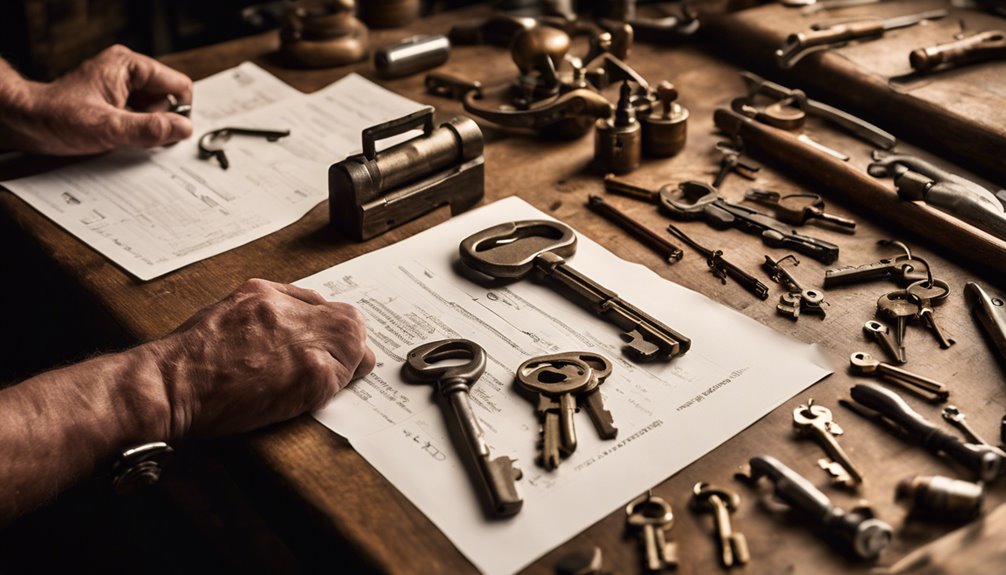
While there are no specific educational requirements to become a locksmith in Pennsylvania, adhering to professional standards is essential for ensuring quality service and maintaining client trust.
As a locksmith, your ability to provide reliable service hinges on several key aspects that enhance your credibility and reputation in the industry. Here's what you should focus on:
- Training and Education: Engage in ongoing training that combines classroom learning with hands-on experience. Topics like key identification, lock installation, and emerging security technologies are vital.
- Licensing and Certification: Even though state-issued licenses aren't mandatory, pursuing certifications from credible organizations like the Associated Locksmiths of America enriches your professional standing.
- Ethical and Moral Standards: Uphold a strong ethical framework. Respect client privacy, and avoid unlawful practices, such as duplicating keys without authorization.
- Insurance and Liability Coverage: Invest in business insurance that protects against potential financial losses. This not only secures your business but also assures clients of your commitment to professional integrity.
Impact of Employee Conduct
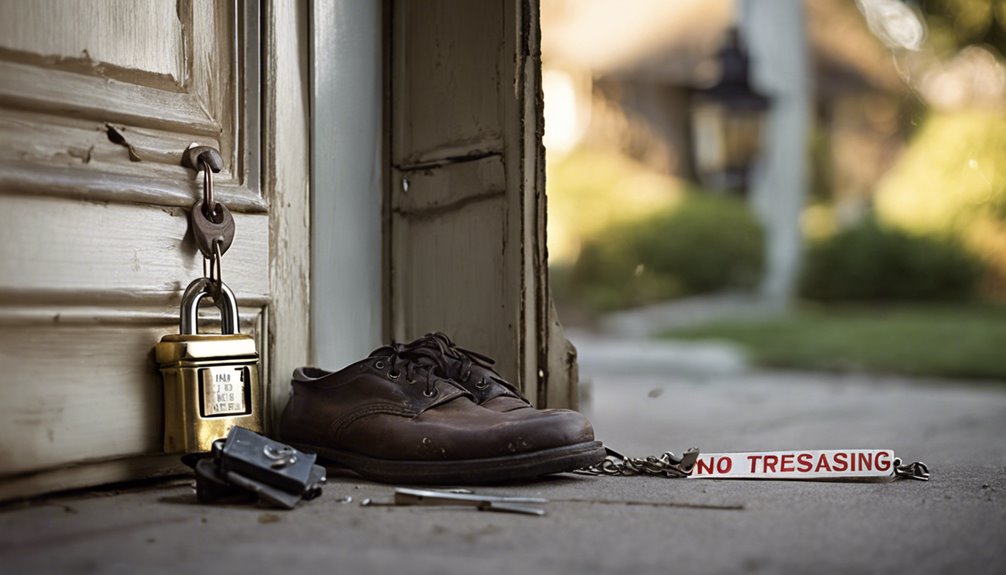
Employee conduct substantially affects a locksmith's liability under Pennsylvania law. When employees engage in criminal conduct or negligent behavior, employers become susceptible to increased liability. Pennsylvania law permits claims against locksmiths for negligent hiring, retention, and supervision, especially if evidence shows prior concerns about an employee's actions. For you as an employer, maintaining a vigilant approach toward employee conduct is crucial.
If you fail to adequately supervise or train your employees, you can face significant legal consequences. For instance, if an employee's aggression or potential for violence is known to you, neglecting to intervene can expose your business to liability. It's important to manage interpersonal conflicts among employees proactively to minimize risks that could lead to harmful situations.
Moreover, negligent hiring decisions can yield civil and criminal penalties. Misclassification of employees can complicate this further, leading to wage and hour law violations. Failure to rectify known behavioral issues can exacerbate your legal exposure if an incident occurs.
Implementing thorough training programs not only equips employees with necessary skills but also serves as a defense against wrongdoing. As an employer, it's crucial to confirm that your insurance coverage adequately protects against liabilities stemming from employee misconduct.
This proactive stance can emphasize your commitment to maintaining a safe work environment, ultimately safeguarding your business from potential financial and legal repercussions. Fundamentally, careful attention to employee conduct is critical to mitigate the risks of locksmith liability under Pennsylvania law.
Frequently Asked Questions
What Qualifications Should a Locksmith Have to Reduce Liability Risks?
To reduce liability risks, you should guarantee your locksmith possesses proper licensing and certification, which indicates adherence to industry standards and ongoing education.
Verify their insurance coverage, as this protects against damages during work.
Look for locksmiths with solid professional training and certifications, which demonstrate skill and knowledge of the latest security measures.
Additionally, confirm they maintain compliance with regulatory requirements and communicate clearly about job expectations to avoid misunderstandings.
How Can Customers Identify a Reliable Locksmith Service?
To identify a reliable locksmith service, start by verifying their license and certifications.
Check for online reviews and ratings, and consult your local Better Business Bureau.
Request estimates upfront to guarantee transparent pricing.
Assess their emergency services; a trustworthy locksmith should be available 24/7 and handle various needs.
Finally, confirm their ability to work with modern security systems, ensuring they can address your specific requirements effectively.
Can a Property Owner Sue a Locksmith for Break-In Damages?
Imagine you hired a locksmith who installed a faulty lock, leading to a break-in. Yes, as a property owner, you can sue that locksmith for damages.
To succeed, you'll need to prove their negligence directly contributed to the incident. Gather evidence like police reports and documentation of the locksmith's actions.
If you establish that their failure breached the duty of care, you may secure compensation for your losses.
What Protections Do Locksmiths Have Against Frivolous Negligence Claims?
Locksmiths have several protections against frivolous negligence claims. They can obtain general liability insurance to cover potential damages and employee dishonesty coverage to protect against theft claims.
Additionally, they can argue that they hadn't breached a duty of care or that the harm wasn't foreseeable. Proper documentation of procedures and adherence to industry standards also strengthens their defense, helping to mitigate the impact of potential allegations and ensuring their financial stability.
How Does Locksmith Negligence Affect Renters Versus Property Owners?
Locksmith negligence can greatly impact both renters and property owners.
For renters, if faulty locks lead to a break-in, they might hold landlords accountable for negligence.
Property owners, however, face liability if they hire unqualified locksmiths or ignore security risks.
In both cases, documentation is essential to prove that negligence directly caused damages.
Understanding this difference helps you navigate potential liabilities and guarantees you maintain secure living or working environments.
Conclusion
In conclusion, understanding locksmith liability in Pennsylvania is essential for both property owners and locksmiths. Did you know that nearly 30% of all break-ins occur through unlatched doors or windows? This highlights the importance of proper security measures and the potential consequences of negligence. By recognizing the responsibilities outlined by law, you can better protect your property and mitigate risks. Staying informed about negligent security and locksmith standards can make a significant difference in safeguarding your home or business.

